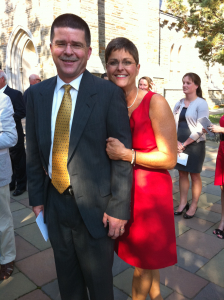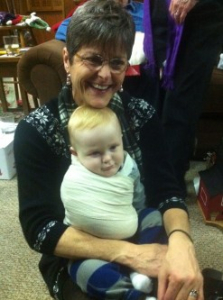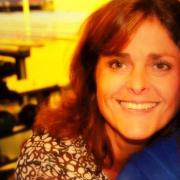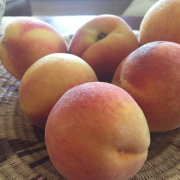The calendar is a mystifying tyrant, often conveying the passage of time with mathematics that defy the heart’s reality. This week She commands me to note that this Friday marks six years since my younger sister Jane died after a long battle with breast cancer. Six years? Calendar, are you sure? I can still hear Jane’s voice as if she dropped by yesterday afternoon. Just the other day, I had the strangest instinct to call her on the phone.
Sitting on the porch during a welcome break in the summer heat, awash in the soothing fervor of the cicadas, I think for the umpteenth time about where to find grace in the aftermath of devastating loss. Those thoughts ramble, unauthorized but determined, to a story I heard a few weeks ago. If you hang out in Nashville longer than about 15 minutes, you are bound to encounter such tales. After 25 years here, I’ve heard this one more than once, but I love it still. It explains the origin of a classic country song.
High on a hill south of town at a benefit concert I attended with friends, outside under a June evening’s sapphire sky, songwriter Kent Blazy recalled his first meeting with a young and eager singer from Oklahoma who was getting nowhere pitching a song. The young man came to him for help, saying, “I’ve got this idea for a song that’s been rejected eight or nine times already.” Blazy indicated with a roll of the eyes he was not encouraged by this news, but he asked what the song was about. “It’s about telling people you love them before they die,” came the reply.
Well, no wonder, Blazy thought. That’s such a downer; who wants to hear a song about that? Yet something moved him to sit down with this beginner, and they worked out a new iteration that was recorded by the young Oklahoman and released 30 years ago this summer. If Tomorrow Never Comes became the first No. 1 single for the legendary Garth Brooks.
Loving the underdog element of this story and a longtime fan of the beautiful tune, I listened closely again as Blazy performed it. And I noticed something I hadn’t before. While the lyrics were ultimately crafted to imply a romantic viewpoint, perhaps to get past the label’s bean counters, the core of the original idea remains, clear as a bell in the second stanza. The refrain we longtime fans can sing from memory goes like this:
“If tomorrow never comes
Will she know how much I loved her
Did I try in every way, to show her every day
That she’s my only one
And if my time on earth were through
And she must face this world without me
Is the love I gave her in the past
Gonna be enough to last,
If tomorrow never comes.”
Then the second stanza moves on to the very personal heartbreak that provided that original, long-ago inspiration for Brooks:
“Cause I’ve lost loved ones in my life
Who never knew how much I loved them
Now I live with the regret
That my true feelings for them never were revealed
So, I made a promise to myself
To say each day how much she means to me
And avoid that circumstance
Where there’s no second chance to tell her how I feel.
And if tomorrow never comes….”
In this verse I hear a tiny glimmer that illuminates gratitude about the circumstances of my sister’s passing. I had lots of chances to tell her I loved her, many opportunities to show her, especially in her final weeks and months, and some divine guiding hand led me to take many of those. It is not something for which one can claim credit, but simply be grateful, that the universe conspired to make those things possible. And knowing this was so does not diminish the deepest sense of loss. It simply migrates it to a form that includes, in the wide spectrum of emotion that is grief, a small grain of peace.



That peace joins with special prayers for those who lose loved ones without warning, robbing them of those vital final chances to say what needs to be said. And that heartbreak, of course, is what makes the promise Brooks made to himself so deeply important—because none of us can know when tomorrow never comes.
If credit is due to anyone for the inspiration to tell Jane so often in her final months that I loved her, it probably belongs to my father. His habit of freely expressing his love to his wife and children, not necessarily a routine thing for men of his generation, is likely his greatest legacy. It was a pattern he continued until the final hours of his life, which ended just five months after his youngest daughter left us. As complicated and challenging a man as he was, I am reminded that of all the standards he and Jane set for living a good life, none may be more important than that one. It’s my job now to pass it along.
“…So, tell that someone that you love
Just what you’re thinking of
If tomorrow never comes.”



